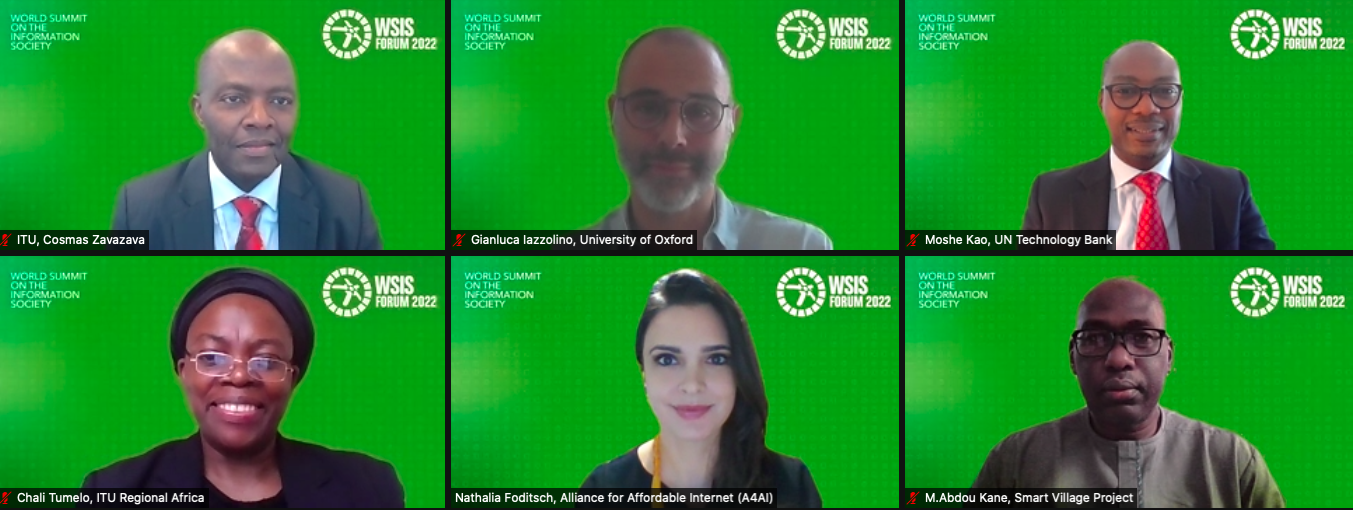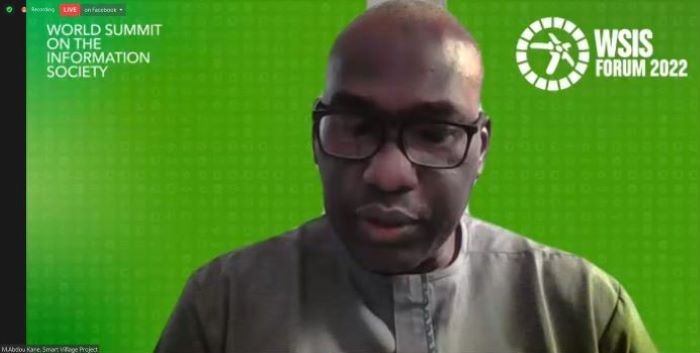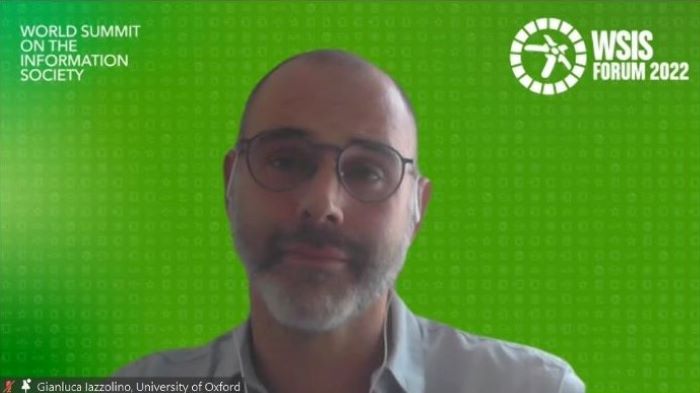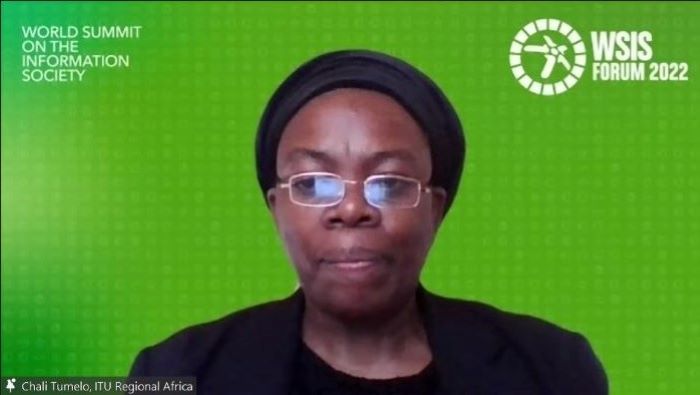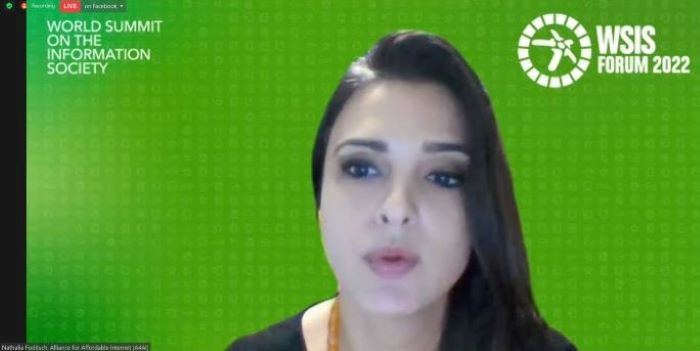Role of ICTs in Finance and Digital Inclusion
ITU/UN Technology Bank for Least Developed Countries
Session 225
Information and Communication Technologies (ICT) have introduced a whole range of new services to individuals, businesses, and governments in terms of modern technological progression, economic growth, improving welfare services[1]. Lack of digital skills to fully integrate and benefit from ICTs is inhibiting the LDCs to fully benefit from ICTs. Currently, in the majority of Least Developed Countries (LDCs) , the level of digital skills is less than 5%. With new opportunities can come new spaces for inequality, and conscious and deliberate action needs to be taken to ensure that ICT prevents, rather than perpetuates, digital exclusion. Newly emerging trends such as Massive open online courses (MOOCs)[2]present opportunities for inclusive innovation and the active participation of vulnerable groups such as women and minorities. However, limited access to meaningful internet inhibits participation of vulnerable communities to enhance their digital skills. addressing these challenges require large investments for LDCs to transition to digital economies.
In forming this infrastructure online safety, particularly for vulnerable groups, must be advanced in step with technical infrastructure and capacity. This is a key aspect of the role of ICTs in finance as, without this sense of security, fintech in LDCs will struggle to gain ground. Even as it has been seen that inclusion in health and education systems offline is dependent on feeling safe/ system accountability and transparency, this equally extends to the online world. Although many LDCs such as Rwanda, Uganda and Zambia have adopted new data protection legislation, less than 50% have privacy legislation[3]. There is need to have targeted policies and regulatory environment that promote financial and digital inclusion especially for the youth and women.
Issues/Objectives
This session will be centered around a panel discussion including speakers from an LDC member state, the start-up sector and the African development Bank. There will be space for questions for the participants in the latter part of the session.
- What is the role of the ICT Policy environment for bridging the digital divide?
- What are the main challenges in addressing financial and digital inclusion?
- How are emerging issues such as data input, AI and privacy shaping this debate going forward?
- What financial commitments are required to implement the digital transformation strategy for Africa (2020-2030)[4]?
[1] Sohail Raza Chohan & Guangwei Hu (2022) Strengthening digital inclusion through e-government: cohesive ICT training programs to intensify digital competency, Information Technology for Development, 28:1, 16-38, DOI: 10.1080/02681102.2020.1841713
[2] ‘Massive open online courses, with an estimated market size of USD 4.6 billion in 2020 and projected to grow by 32 per cent annually through 2026 (MarketDigits, 2021), are a good example of effective connectivism’20.
[3] UNCTAD, 2022. https://unctad.org/news/least-developed-countries-still-lag-behind-cyberlaw-reforms
[4] https://au.int/sites/default/files/documents/38507-doc-dts-english.pdf

Mr. Moshe KAO is the Progamme Management Officer at the UN Technology Bank for Least Developed Countries. Mr. Kao is an experienced professional with experience in trade policy and international development in a variety of environments in organizations with different specialisations. He served as the Permanent Representative of the Lesotho to the United Nations Office in Geneva and Other United Nations Specialised Agencies in Geneva, Switzerland.
Mr. Kao as an independent consultant provided advisory services in Geneva for the African, Caribbean and Pacific (ACP) Group on development issues and coordinated the African Group and monitored developments on LDC related issues within the WTO.
In diplomatic service, he served as Minister Counsellor in the Permanent Mission of Lesotho in Geneva overseeing trade and development portfolio and played critical roles in the ministerial conferences of the WTO and UNCTAD. Diplomatic career started in 2008 at the High Commission of the Kingdom of Lesotho in Ottawa, Canada.
Mr Kao holds a Master of Business Administration from University of South Africa, Bachelor’s degree in Information Systems from Rhodes University and Certified Development Project Management from PM4DEV. He has publications on trade and development.

Dr Cosmas Zavazava is a national of Zimbabwe with a solid track record of implementing information and communication technology (ICT) projects in all the regions of the world. His experience spans over 35 years in the telecommunications sector.
He is currently the Chief of Department responsible for Partnerships for Digital Development in the BDT since 2019. In this post he is responsible for negotiating partnerships, mobilizing resources for projects, growing, and engaging with the Development Sector’s industry and private sector members, and managing ITU’s project portfolio. He has successfully launched new initiatives that has seen growth and an increase in participation by industry and private sector membership and has successfully brought new partnerships to ITU and millions of dollars through resource mobilization. He was previously Chief of Department in the BDT responsible for Projects and Knowledge Management from 2010 to 2019. In this capacity, he was responsible for the overall management of the ITU project portfolio, statistics, capacity building, emergency telecommunications, and providing special assistance to least developed countries (LDCs), landlocked developing countries (LLDCs), and small island developing states (SIDS). Prior to that he worked as Head of Division for business development, special assistance to LDCs, LLDCs, SIDS, emergency telecommunications, climate change adaptation, and e-waste management. Previously, before joining ITU, he was the Head of Government Telecommunications Agency in his native country, and then a senior diplomat (Minister Counsellor).
In carrying out his work, he continued to demonstrate strong leadership, good judgement, hard work, and a result-oriented approach. He has a clear vision and commitment, relevant experience, passion, and aptitude for the assumption and successful discharge of the higher office of Director of the BDT. Dr Cosmas Zavazava travelled extensively to more than 125 countries to design and implement projects, to negotiate and conclude partnerships, and to speak at global events.
Dr Cosmas Zavazava studied in Romania, Japan, United States, United Kingdom, Switzerland, and Zimbabwe. He holds Diplomas in telecommunications and computer systems engineering, a bachelor’s degree in business administration, Master’s degrees in Business Administration, International Relations, Telecommunication and Information Technology Law, and a Doctorate in International Trade.


Gianluca Iazzolino is a Postdoctoral Research Fellow in the Programme in Comparative Media Law and Policy (PCMLP) at the Centre for Socio-Legal Studies. He's currently focusing on how AI and digital platforms are reshaping governance in areas of limited statehood in Africa for the ERC-funded project ConflictNET. His research interests lie at the intersection of political economy, socio-legal studies and digital geography, with a geographic focus on East Africa (Kenya, Uganda and Somaliland in particular), where he has conducted extensive fieldwork over the past ten years. He uses ethnographic methods to explore the interplay of technology and power in the specific cases of hybrid governance, digital finance and digital platforms in the Global South. Besides working on the ConflictNET project, Gianluca is PI of the UKRI-funded Datafication and Digital Rights in East Africa, which explores how digital platforms are reshaping processes of inclusion and exclusion and instigating new forms of organisation and practices of contestation in East Africa.
Gianluca completed his PhD in African Studies from the University of Edinburgh and was a Research Fellow at the LSE. He is a fellow of the Firoz Lalji Centre for Africa, LSE, and of the Institute of Money, Technology and Financial Inclusion (IMTFI), University of California Irvine. Previously, he has worked as a consultant for NGOs and aid organisations in Senegal, Burkina Faso and Niger, and as a freelance journalist in Africa, Central and South America, the Middle East, Russia and India.
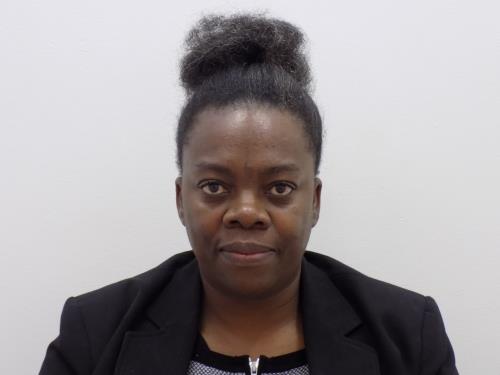
Eng. Chali Tumelo (Ms.)
Holds a BSc (Hons) in Electrical and Electronics Engineering, Manchester University, England, July 1985.
Has since attended several types of professional training with certificates in various courses in International Telecommunications Training Institutes including Motorola University in Chicago and Siemens Training Institute in Pretoria in the areas of design, management, administration and operations of all Telecommunication Network Elements and Subsystems of a Cellular Network, other Wireless Systems and 3G Technologies including International Mobile Technologies 2000 (IMT 2000) and beyond. Qualified MEIZ (Member of Engineering Institute of Zambia). She holds other certificates in Business Planning, Marketing, Finance and Management skills including Project management, Leadership and Management and Change Management.
Currently, working with United Nations specialized Agency in Telecommunications and Information and Communication Technologies (ICTs) as ITU Representative for Southern Africa Heading the Area Office covering 12 countries with technical assistance since August 2012 in the following Thematic Areas in addition to management and leadership of the Office including collaboration with other UN Agencies and the Host Country.
i) Networks and digital infrastructure
ii) Cyber Security
iii) Emergency Telecommunications
iv) Environment (E-Waste and Climate change)
v) Digital policy and regulation
vi) Capacity Development
vii) Digital services and applications
viii) Digital Inclusion
ix) Digital innovation ecosystems
x) Statistics and data for evidence-based decision making.
Earlier she worked as ITU Senior Advisor for Network Management and Development for Eastern and Southern Africa for 11 (Eleven) years (October 2001 – August 2012). Previously worked as Project Manager for study and design of remote wireless communications solutions, REMOTEL, Zambia August 2000 – October 2001). GSM D900 Cellular Network Administration, Maintenance and Operations Manager, ZAMCEL 1998-2000), Zambia. CDMA Cellular Network Systems and Radio Engineer, TELECEL, Zambia (1996-1998), International Computers Field Services Computer Engineer, ICL (International Computers Limited), Zambia (June 1989- April 1991), Radio and Transmission Planning Telecommunications Engineer, ZAMTEL, Zambia (August 1985-May 1989)

Nathalia Foditsch is a licensed attorney and has worked on technology and communications policy and regulatory issues over the past twelve years. She has worked for some of the main international organizations and think tanks, which she has represented in official missions to numerous countries in the Latin America, Caribbean, and Europe. Nathalia has also worked as an International Adviser for the Administrative Council for Economic Defense (CADE), the Brazilian antitrust authority, and served as a coordinator for communications policy and regulation at the ministerial level in Brazil. Foditsch is a research fellow at Cornell University’s Emerging Markets Institute (EMI), which is part of the Samuel Curtis Johnson Graduate School of Management.
Among other publications focused on technology and communications policy and regulation, Foditsch has co-edited and co-authored the book “Broadband in Brazil: Past, Present, Future”, which was a finalist of the 2017 “Jabuti Awards” (the main literary award in Brazil). Nathalia is an adjunct professor at the University Jose Cela (Spain); and holds a master’s in law (LLM) and a master’s in public policy (MPP) and is a member of the advisory board of the Brazil-U.S. Legal and Judicial Studies Program at the Washington College of Law (WCL). She is fluent in Portuguese, English, Spanish and German.
